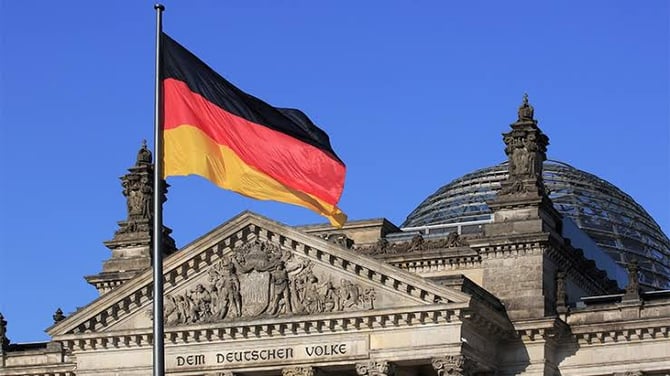Germany's Economy Facing Multiple Challenges

Germany, the world's fourth-largest economy, has faced a challenging start to the year marked by industrial unrest, including strikes by Lufthansa's ground crew, train drivers, and farmers protesting subsidy cuts.
These incidents underscore the broader economic difficulties facing Germany, which saw its economy contract last year for the first time since the onset of the pandemic. The International Monetary Fund forecasts a modest growth of 0.5% for Germany in 2024, positioning it as the slowest-growing major economy.
Some analysts even predict a potential second year of economic decline due to persistent high energy costs, increased borrowing expenses, and reduced demand for German exports both domestically and internationally.
Germany's economic slump is aggravated by the ongoing energy crisis triggered by geopolitical tensions, notably Russia's actions in Ukraine, leading to a historic downturn in industrial production. Structural issues, such as labor shortages, bureaucratic hurdles, and inadequate infrastructure, further complicate recovery efforts.
What Does This Mean for Me?
Germany's economic model, which has historically relied on manufacturing and exports, faces new threats. The shift in global dynamics, including China's evolving economic role and the United States' protectionist measures, has impacted German industries, particularly the automotive sector.
Despite these challenges, Germany's industrial and technological strengths, coupled with its capacity for innovation, offer a foundation for recovery. Analysts expect that in the long run, the commitment of businesses to adapt and embrace new technologies, especially in sectors like renewable energy and digital infrastructure, may pave the way for rejuvenating Germany's economic prowess.
More News
.webp)
Japan’s Rate Shift Is Rippling Through Global Bond Markets
2 weeks ago

China’s Growth Engine Stalls as Consumers and Investors Pull Back
2 weeks ago

Egypt’s Recovery Gains Traction as Household Pressure Lingers
3 weeks ago

OECD Warns AI and Tariffs Will Test the Global Economy
4 weeks ago

Zero Tariffs, Higher Drug Bills as US and UK Reset Pharma Trade
1 month ago

Catastrophe Bonds Go Global as Climate Risk Meets Yield Hunting
1 month ago
.webp)
Canada Shields Steel and Lumber Industries From Tariffs
1 month ago

Trump Drops Selected Tariffs in Response to Inflation Pressures
1 month ago